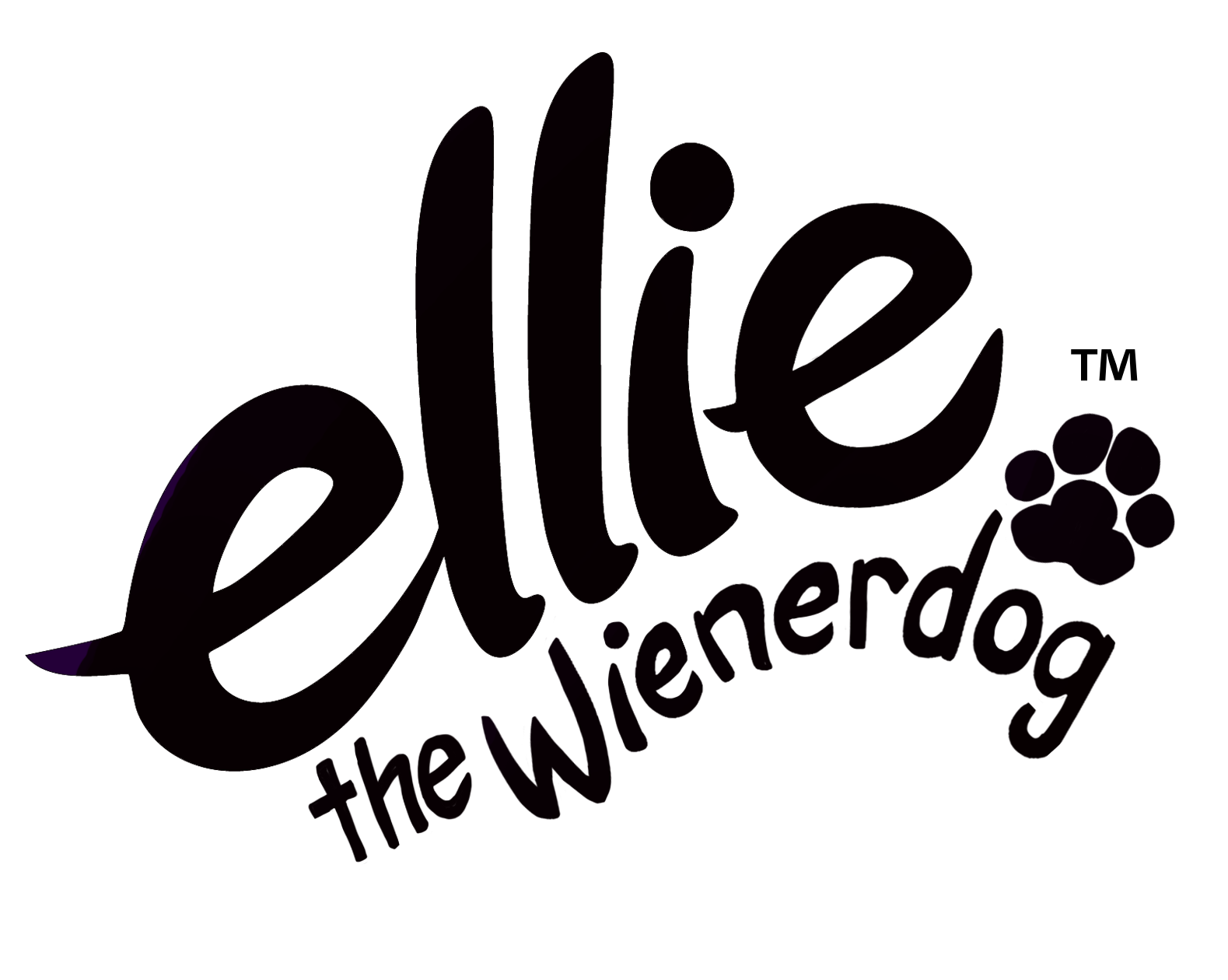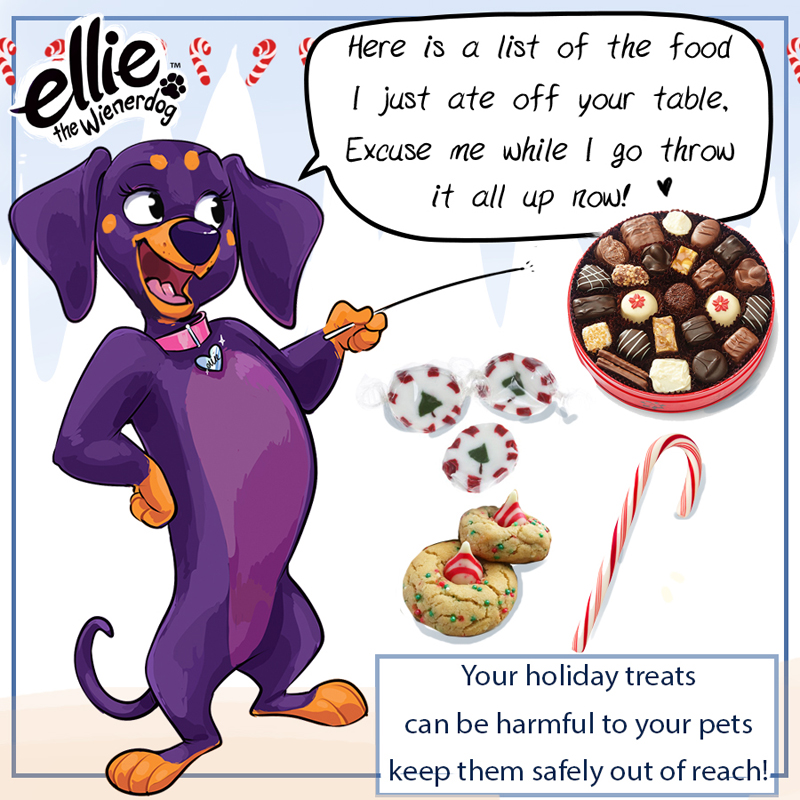It’s that time of year again and in all the hustle and bustle, it can be easy to overlook the myriad dangers that can plague your furry friends. Holidays provide unique opportunities for your canine companions to unwittingly endanger themselves and ruin their (and your) holiday cheer. Here are Ellie the Wienerdog’s Holiday Safety Tips – Part 3 of our three part series.
Last time we wrote, we discussed the myriad plants that are used for holiday decorating, that also can pose a danger to your pets if ingested. This week, we want to educate on the risk of your pets ingesting other kinds of food and food related objects.
Holiday Foods to Watch Out For:
It is always tempting to feed animals pet food around the holidays and even if you resist the urge, your pets might take matters into their own furry paws. A lot of animals will try to eat the leftover packaging from food items, even breaking into the trash can to get in often clever ways. If your pet does eat trash, they can be at risk for choking or an intestinal blockage. Foil Wrappers can slice your pet’s insides up badly.
Chocolate is all around us pretty much every holiday and Christmas/New Years Eve are just as saturated with this delicious type of treat. All chocolate contains a chemical compound called theobromine, which is dangerous to pets. The darker the chocolate, the higher the concentration of theobromine and the higher chance of death. Even a small amount ingested can cause gastrointestinal distress in your dog.
Xylitol is another chemical found in a lot of sugar free treats that is extremely dangerous to dogs and cats. A naturally occurring sugar substitute found in many items, including birch trees, different veggies and fruits, it is very popular in today’s food product selection. Check your labels carefully because just a small amount of Xylitol eaten by your dog or cat can send them into hypoglycemia which is life threatening and hard to treat if not caught quickly. Signs of Xylitol poisoning is klutziness, vomiting, sudden exhaustion and seizures.
If you think your pet has experienced toxicity or even eaten any of the plants in question, you may call the American Society for the Prevention of Cruelty to Animals Poison Control phone line at 888-426-4435. (May charge a fee for use.) Or you can call your veterinarian, but it is best to be safe than sorry. If you do call, be sure to have the following information ready to share for a faster resolution:
- What was eaten
- How much of it was eaten.
- What time it was ingested.
- Your pet’s weight and age.
Your veterinarian may ask you to bring in pieces of what was eaten for identification at your appointment.
We hope that you have uneventful holidays and that all household members are safe and healthy, human and dog alike. Ellie the Wienerdog wishes everyone Happy Holidays!
Related Content:
If you liked this article, be sure to check out Ellie the Wienerdog’s Holiday Safety Tips – Part 1 and Ellie the Wienerdog’s Holiday Safety Tips – Part 2.

